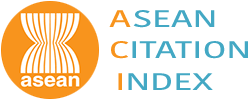Impact of Budget Increase on Primary Health Care Performance in the Era of National Health Insurance: Case Study in Buleleng District
Abstract
Keywords
Full Text:
PDFReferences
1. Rokx C, Schieber G, Harimurti P, Tandon A, Somanathan A. Health fi- nancing in Indonesia, a reform road map. Washington DC: The Wordl Bank. 2009.
2. Kementerian Kesehatan Republik Indonesia. Keputusan Menteri Kesehatan Republik Indonesia nomor: 494/Menkes/SK/IV/2010 ten- tang petunjuk teknis bantuan operasional kesehatan. Jakarta: Kementerian Kesehatan Republik Indonesia; 2010.
3. Roberts M, Hsiao W, Berman P, Reich M. Getting health reform right. Oxford: Oxford University Press; 2002.
4. Franco LM, Bennett S, Kanfer R. Health sector reform and public sector health worker motivation: A conceptual framework. Social Science & Medicine. 2002; 54(8): 1255-66.
5. McDonald R, Harrison S, Checkland K, Campbell S. M. Roland M. Impact of financial incentives on clinical autonomy and internal moti- vation in primary care: Ethnographic study. BMJ. 2007; 334 (7608): 1357-62.
6. Gosden T, Forland F, Kristiansen I, Sutton M, Leese B, Giuffrida A, et al. Capitation, salary, fee-for-service and mixed systems of payment: Effects on the behaviour of primary care physicians (Review). Cochrane Database of Systematic Reviews. 2000; (3): 1–25.
7. Musgrove P, Creese A, Preker A, Baeza C, Anell A, Prentice T. The world health report 2000: Health systems: Improving performance. Switzerland: World Health Organization; 2000.
8. Australia Indonesia Partnership For Health Systems Strengthening. Pembiayaan kesehatan dan cakupan kesehatan semesta. Jakarta: Kementerian Kesehatan Republik Indonesia. 2015. Available from: http://aiphss.org/wp-content/uploads/2015/09/Policy-notes-Bahasa- WEB-PEMBIAYAAN-KESEHATAN-DAN-CAKUPAN-KESEHATAN- SEMESTA-K.-NOTA-KEBIJAKAN-1.pdf (2015).
9. Fleetcroft R, Cookson R. Do the incentive payments in the new NHS contract for primary care reflect likely population health gains? Journal of Health Services Research & Policy. 2006; 11(1): 27–31.
10. Smith PC, Mossialos E, Papanicolas I. Performance measurement for health system improvement experiences, challenges and prospects. Denmark: World Health Organization; 2008.
11. Tomasi E, Facchini LA, Maia M de FS, Fatima MD, Maia S. Health in- formation technology in primary health care in developing countries : A literature review. Bulletin of the World Health Organization. 2004; 82(11): 867–74.
12. Nurmansyah MI, Kilic B. Impact of national health insurance policy to- wards the implementation of health promotion program at public health centers in Indonesia. Kesmas: National Public Health Journal. 2017; 11(3): 103-10.
13. Pay DMN, Sinaga M, Pelokilla MR. Utilization of health operational as- sistance (BOK) in nutrition services in public health center. Jurnal Kesehatan Masyarakat. 2017; 12(2): 313–22.
14. Hendrayani NWA, Indrayathi PA, Wijaya IPG. Persepsi Pegawai Puskesmas tentang sistem pembagian jasa pelayanan Jaminan Kesehatan Nasional (JKN) di Kabupaten Karangasem. Public Health and Preventive Medicine Archive. 2015; 3(2): 158–66.
15. Scott A, Sivey P, Ouakrim DA, Lisa W, Naccarella L, Furler J, et al. The effect of financial incentives on the quality of health care provided by primary care physicians. Cochrane database of systematic reviews (Online). 2011; 9: CD008451.
16. Oxman AD, Fretheim A. Can paying for results help to achieve The mi- llennium development goals? Overview of the effectiveness of results- based financing. Journal of Evidence-Based Medicine. 2009; 2(2): 70– 83.
17. Chaix-Couturier C, Durand-Zaleski I, Jolly D, Durieux P. Effects of fi- nancial incentives on medical practice: Results from a systematic review of the literature and methodological issues. International Journal for Quality In Health Care: Journal of the International Society for Quality in Health Care. 2000; 12(2): 133–42.
18. Scott T, Mannion R, Davies HTO, Marshall MN. Implementing culture change in health care: theory and practice. International Journal for Quality in Health Care. 2003; 15(2): 111–18.
19. Hogg W, Rowan M, Russell G, Geneau R, Muldoon L. Framework for primary care organizations: The importance of a structural domain. International Journal for Quality in Health Care. 2008; 20(5): 308–13.
DOI: http://dx.doi.org/10.21109/kesmas.v13i2.1875
Refbacks
- There are currently no refbacks.































